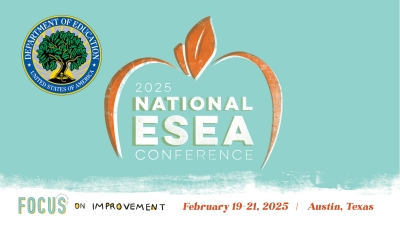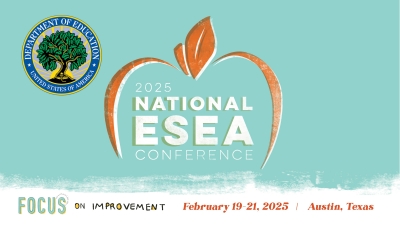The Bipartisan Safer Communities Act (BSCA), signed into law by President Biden on June 25, 2022, provides an additional $2 billion to the Office of Safe and Supportive Schools at the U.S. Department of Education. The BSCA provided historic funding to help meet President Biden’s goal of doubling the number of school-based mental health professionals in schools and supporting student well-being. Come hear updates on two grant programs to increase access to mental health services for students and young people, totaling $280 million, that were funded through the BSCA and about technical assistance to States and districts in using BSCA State and local resources to invest in evidence-based practices that support student well-being.

Bronwyn Roberts, Esq. is the Director of the U.S. Department of Education’s Title IV, Part A Technical Assistance Center, as well as the Strategic Director of the Readiness and Emergency Management for Schools Technical Assistance Center, overseeing national TA Centers on behalf of the Department for over 15 years. In this capacity, Ms. Roberts leads the development and administration of a wide portfolio of technical assistance tools and resources for populations across the country, including schools and LEAs, institutions of higher education, state agency representatives and federal practitioners, addressing systems improvement across a breadth of subject matter, such as school safety and violence prevention, emergency management for schools, health and mental health service provision, well-rounded educational services, and addressing the needs of vulnerable and disadvantaged populations.
Ruth Ryder is the Deputy Assistant Secretary for the Office of Policy and Programs – Formula Grants in the Office of Elementary and Secondary Education (OESE) at the U.S. Department of Education. OESE implements programs to support disadvantaged students under the Elementary and Secondary Education Act as amended by the Every Student Succeeds Act, In this role, Ms. Ryder oversees a broad range of management, policy, and program functions related to formula and discretionary grant programs under the ESEA.
Ms. Ryder joined OESE in April 2019 and has responsibility for formula grants under Title I (Basic Grants, Assessment, Migrant and Neglected and Delinquent), II-A (Effective Educators), III-A (English Learners), IV-A (Student Support and Academic Enrichment), IV-B (21st Century Community Learning Centers) and National Activities for School Safety, Title V (Rural Education Achievement Program), Title VI (Indian Education) and Title VII (Impact Aid). In addition, OFG administers numerous discretionary grants related to Titles I-VI, including the Comprehensive Centers and Equity Assistance Centers.
During her time in OESE, Ms. Ryder has sought to improve coordination across ESEA programs, increase communication with State customers and partners, and streamline internal processes. In addition, Ms. Ryder is leading an effort to improve alignment of technical assistance both within OESE, as well as across the Department. These efforts have resulted in improved ability to meet grantee needs, reduced duplication of effort and increased return on investment. Ms. Ryder was previously the deputy director of the Office of Special Education Programs in the Office of Special Education and Rehabilitative Services, which she joined in 1988. In that position, she provided national leadership for moving special education accountability to a more results-oriented focus.
Prior to joining the Department, Ms. Ryder was a program administrator in a Washington state school district. There she had responsibility for the Elementary and Secondary Education Act Title 1 and Title II programs, state-remediation, gifted education, outcome-based education, and state- and district-wide testing programs. She also administered an ED-funded demonstration project, examining integrated service delivery models for including children with learning differences in general education. Additionally, Ms. Ryder has been a special education consulting teacher and a general education classroom teacher. Ms. Ryder has a bachelor’s degree in psychology and elementary education and a master’s degree in special education.








